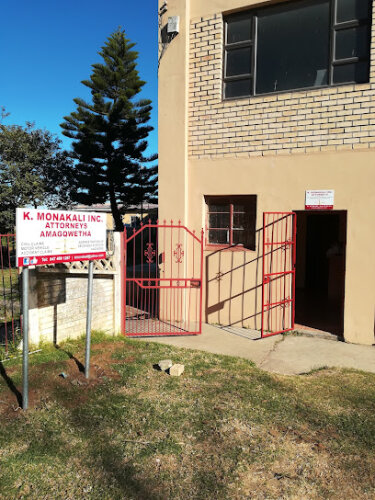Best Pension Lawyers in East London
Share your needs with us, get contacted by law firms.
Free. Takes 2 min.
List of the best lawyers in East London, South Africa
About Pension Law in East London, South Africa
Pension law in East London, South Africa, is primarily governed by national legislation, such as the Pension Funds Act and related regulations. Pensions form a crucial part of retirement planning, providing individuals with financial support after leaving employment due to age, disability, or other circumstances. In East London, as elsewhere in South Africa, pension matters may involve private pension funds, state social grants, or employer-sponsored retirement schemes. Understanding these laws helps individuals protect their rights to fair pension benefits and ensures compliance with both statutory and contractual obligations.
Why You May Need a Lawyer
There are several common situations where seeking legal advice regarding pensions can be essential in East London:
- Disputes over pension entitlements: Conflicts may arise between members and pension funds or employers regarding eligibility, payouts, or calculations.
- Divorce or separation: The division of pension benefits can be complex during marital dissolution, requiring expert legal intervention.
- Retrenchments or dismissals: Employees facing job loss may need assistance understanding their pension rights and negotiating benefits.
- Pension fund mismanagement: If there is evidence of fund irregularities or unlawful practices, legal support may be required.
- Beneficiary claims: After the death of a pension member, disputes can arise over who is entitled to receive pension benefits.
- Transfer or consolidation of pension funds: Understanding the implications of moving pension funds or consolidating schemes can require professional advice.
- Understanding eligibility for state pensions or social grants: The application process for government-provided pensions can be complicated, particularly if applicants have been denied benefits.
Local Laws Overview
Pension laws and regulations in East London are primarily national, but their application may depend on local circumstances. Key aspects include:
- Pension Funds Act: Regulates all pension funds except those that fall under specific exemptions. It ensures the proper administration, management, and protection of pension fund assets.
- Government Pension Grants: The South African Social Security Agency (SASSA) administers old age, disability, and other social grants, subject to income and age requirements.
- Income Tax Act: Stipulates the rules regarding taxation of pension contributions and withdrawals for both employees and pensioners.
- Employment-related legislation: Labour laws may affect retirement benefits, severance packages, and the treatment of pension entitlements in dismissal or retrenchment scenarios.
- Division of pension on divorce: Governed by the Divorce Act and supported by provisions in the Pension Funds Act regarding 'clean-break' settlements.
- Protection of Fund Members: The Financial Sector Conduct Authority (FSCA) supervises pension funds to ensure compliance and protect members' interests.
- Local application: Residents of East London may have specific concerns, such as access to regional SASSA offices or local pension fund service providers.
Frequently Asked Questions
What is the retirement age to access a pension in South Africa?
The standard retirement age in most pension funds is between 60 and 65, but this may differ depending on the rules of a particular fund or employer. State old age grants are typically available to men and women at 60 years of age.
How do I know if I qualify for a state pension or old age grant?
Eligibility depends on age (60 or older), South African citizenship or permanent residency, residency within South Africa, and passing a means test regarding income and assets.
What documents are needed to apply for a social pension (old age grant)?
Commonly required documents include a South African ID document, proof of residence, proof of income or bank statements, and a marriage certificate (if applicable).
Can pension funds be divided during divorce in South Africa?
Yes, pension benefits can be included as part of the assets divided during dissolution of marriage, following the 'clean-break principle'. The divorce order must specify the allocation.
What should I do if my employer is not paying over pension fund contributions?
This is a serious matter. You should seek legal advice and may lodge a complaint with the Financial Sector Conduct Authority (FSCA). Non-payment of contributions is an offence.
Do I pay tax on my pension income?
Yes, pension income is generally taxable. However, certain lump sum withdrawals may have tax-free portions, and there may be tax benefits to regular annuity payments. Consult a tax advisor for specifics.
What happens to my pension if I pass away?
Pension funds have rules for death benefits, typically distributing sums to nominated beneficiaries or dependants in accordance with legislation and fund rules.
How do I transfer my pension to another fund?
Transfers are possible under specific circumstances and require following proper procedures, including notifying your current and new fund administrators. Get legal advice to avoid penalties or loss of benefits.
Can I cash out my pension before retirement?
Early withdrawal may be possible in specific situations, such as retrenchment, but there are typically financial penalties and tax implications. Each fund has its own set of rules.
Where do I go if I have a pension-related dispute?
Start by contacting your fund administrator or HR department. If unresolved, escalate to the Pension Funds Adjudicator, FSCA, or seek legal advice for further action.
Additional Resources
When seeking support or more information about pensions in East London, consider these useful resources:
- Financial Sector Conduct Authority (FSCA): Regulatory authority overseeing pension funds and handling member complaints.
- Pension Funds Adjudicator (PFA): Independent office for resolving disputes between pension fund members and administrators.
- South African Social Security Agency (SASSA): Local East London office provides support for applying for government pensions and grants.
- Law Society of South Africa (LSSA): For finding authorised legal practitioners with pension law experience.
- Community Advice Offices: Local advice offices across East London assist with pension-related queries, especially for social grants.
Next Steps
If you require legal assistance regarding a pension matter in East London, follow these steps:
- Gather documents: Collect all relevant documents, such as identification, pension statements, employment records, and communication from fund administrators.
- Clarify your issue: Write down your concern or question in detail to ensure you can explain it clearly to a legal adviser.
- Contact your fund administrator or SASSA (if applicable): Many issues can be resolved or clarified at the source.
- Seek legal advice: Find a reputable lawyer with pension law experience in East London, either through the LSSA or local recommendations.
- Prepare for consultation: Bring your documents and timeline of events to your first meeting, and ask about fees or possible outcomes.
- Follow up: Stay in contact with your legal adviser and keep records of all correspondence regarding your case.
Lawzana helps you find the best lawyers and law firms in East London through a curated and pre-screened list of qualified legal professionals. Our platform offers rankings and detailed profiles of attorneys and law firms, allowing you to compare based on practice areas, including Pension, experience, and client feedback.
Each profile includes a description of the firm's areas of practice, client reviews, team members and partners, year of establishment, spoken languages, office locations, contact information, social media presence, and any published articles or resources. Most firms on our platform speak English and are experienced in both local and international legal matters.
Get a quote from top-rated law firms in East London, South Africa — quickly, securely, and without unnecessary hassle.
Disclaimer:
The information provided on this page is for general informational purposes only and does not constitute legal advice. While we strive to ensure the accuracy and relevance of the content, legal information may change over time, and interpretations of the law can vary. You should always consult with a qualified legal professional for advice specific to your situation.
We disclaim all liability for actions taken or not taken based on the content of this page. If you believe any information is incorrect or outdated, please contact us, and we will review and update it where appropriate.










